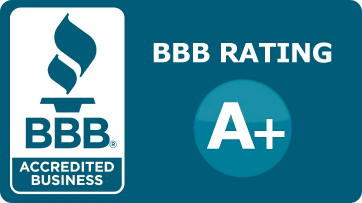Spring Cleaning with Old Paint
Not you Nelly. We're talking about the old paint that comes in cans, that has been littering your barn for the past 10 years.
In fact, we're talking about your old, unused, and near-empty paint cans, those half-dozen quarts, and gallon-sized cans of paint collecting spider webs in the corner of your basement or garage. Nationally that adds up to an estimated 65 million gallons of paint every year. And that is not, as they say, a drop in the bucket!
We know how it happens. You were convinced Coral Moss was the perfect color for your living room but sadly it turned out to look better on Fido's one story, leaving you with 2 1/2 gallons of non-returnable architectural grade paint staring you in the face. What are you to do with it? The answer? Paintcare®—a non-profit organization established by paint manufacturers to run an education/recycling program in any state with a paint stewardship law.

“Paint manufacturers like Sherwin Williams saw the need for a responsible way to dispose of unused paint many years ago,” explained Dan Flaherty, Murphy Bros. Paint & Fine Finishes general manager and all-around paint expert.
PaintCare® was created by the American Coatings Association, a membership-based trade association of the paint manufacturing industry. Working with state and local government stakeholders, ACA passed the first paint stewardship law in the United States in Oregon in 2009.

Sample paragraph text.“They got out in front of the problem and actually helped craft the Sterwardship Law currently working in nine states. It was passed in Minnesota in 2013. It’s a very good program that actually does more than just recycle. They educate and promote this simple strategy: buy the right paint in the right quantities; store it properly; use it up; give it away and recycle the rest,” Flaherty explains.

“If you think about it,” says owner John Murphy, “Most remodels involve painting or staining of some sort. The room, be it a kitchen or bathroom, or floor, has a new color or stain, which means at least some of the homeowners collection of existing paint cans are no longer needed. We used to remove those cans as a favor and take them back to our paint shop and, well, until this Paintcare® program came along in Minnesota a few years ago, they just sat there.” Now they get recycled, explains Murphy.
Since the start of the Minnesota paint stewardship program on November 1, 2014, PaintCare has set up 238 drop-off sites where the public can take unwanted, leftover paint for recycling. These sites are at paint retailers (paint and hardware stores) and county household hazadous waste facilities that have volunteered to take back paint, and they are available to any household and most businesses in Minnesota. These locations accept paint whenever they are open for business.
paintcare sites do accept these items
PaintCare® SitesDo Accept the following items:
Interior and exterior architectural paints: latex, acrylic, water-based, alkyd, oil-based, and enamel (including textured coatings)
Deck coatings, floor paints (including elastomeric)
Primers, sealers, undercoats
Stains
Shellacs, lacquers, varnishes, urethanes (single component)
Waterproofing concrete/masonry/wood sealers and repellents (not tar or bitumen-based)
Metal coatings, rust preventatives
Field and lawn paints
PaintCare® sites DO NOT accept:
Paintcare sites do not accept these items
PaintCare® SitesDO NOT ACCEPT the following items:
Paint thinners, mineral spirits, solvents
Aerosol paints (spray cans)
Auto and marine paints
Deck cleaners
Traffic and road marking paints
Industrial maintenance coatings
OEM paint and finishes
Art and craft paints
Caulking compounds, epoxies, glues, adhesives
Paint additives, colorants, tints, resins
Wood preservatives (containing pesticides)
Roof patch and repair
Asphalt, tar and bitumen-based productsle paragraph text.

“Paintcare” products must be in containers that are no larger than 5 gallons in size and must be in its original container with the original manufacturer’s printed label and a secured lid to be accepted at retail drop-off sites. Check with your site drop off to see how much paint can be handed over per visit. Some sites offer a free pickup service for larger quantities (300 gallons minimum) for home or businesses.
How do they recycle the paint? They remix it into recycled paint, use it as fuel, or make it into other products. “In states that participate the cost of the program is already built into paint or stain when you purchase it. That’s why there’s no charge when you drop it off. So you might as well take advantage of the program,” concludes Murphy.








